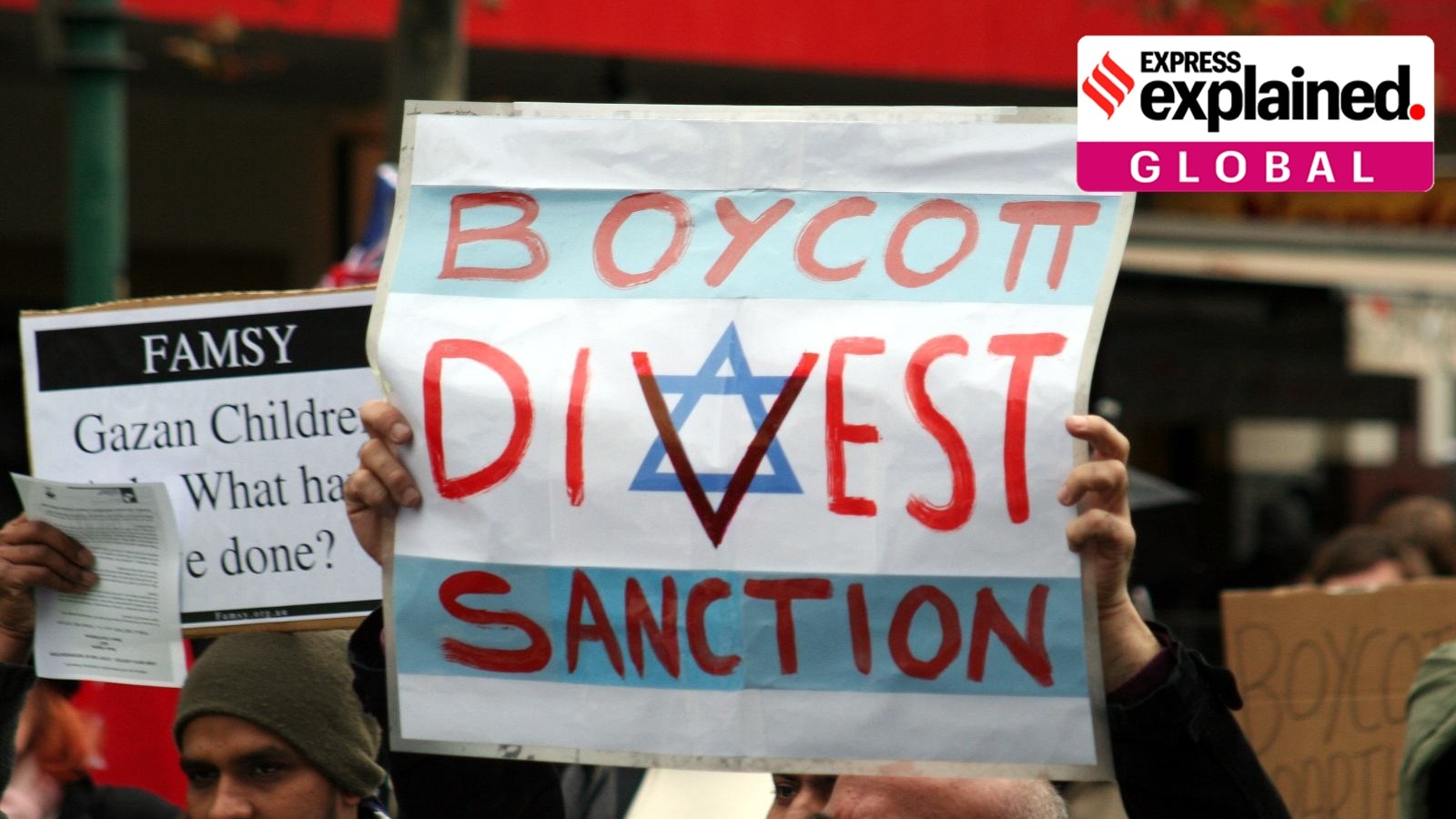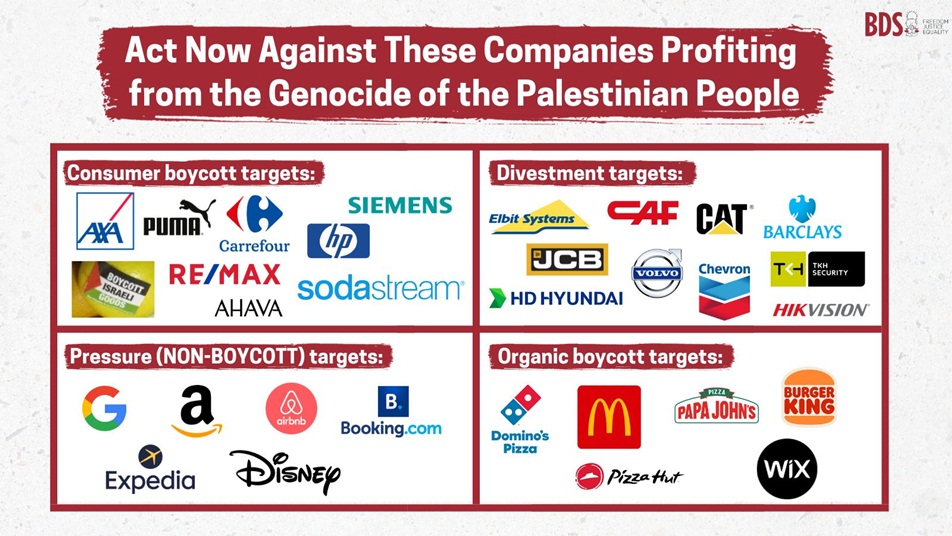An article published in a German newspaper last week accused Indian poet and curator Ranjit Hoskote of “anti-Semitism” and sympathising with the BDS (Boycott, Divestment, Sanctions) movement. Hostoke then resigned from the Finding Committee for Documenta 16, the 2027 edition of one of the world’s most prestigious art exhibitions that is held in Germany, over the accusation. On Friday (November 17), all members of the committee resigned.
Hoskote signed a BDS India petition in 2019, protesting a discussion hosted by the Consulate General of Israel in Mumbai on “Zionism and Hindutva”. Documenta had denounced Hoskote for signing the letter for its allegedly “explicitly anti-Semitic content”.

Amid the ongoing Israel-Hamas war, BDS movement has urged the boycott of some of the biggest and most visible multinational companies, including McDonald’s, Puma, Google, Disney, and Amazon.
 BDS has mentioned the following companies under its various levels of boycott. (Via BDSmovement.net)
BDS has mentioned the following companies under its various levels of boycott. (Via BDSmovement.net)
So what is the BDS Movement?
The movement was launched in 2005 by more than 170 Palestinian groups to garner international support for Palestinian people’s rights. On its website, it describes itself as an “inclusive, anti-racist human rights movement that is opposed on principle to all forms of discrimination, including anti-semitism and Islamophobia.”
It draws inspiration from the South African anti-apartheid movement. BDS urges “nonviolent pressure on Israel until it complies with international law” to meet three demands on Israel:
“1. Ending its occupation and colonization of all Arab lands and dismantling the Wall.
2. Recognizing the fundamental rights of the Arab-Palestinian citizens of Israel to full equality.
Story continues below this ad
3. Respecting, protecting and promoting the rights of Palestinian refugees to return to their homes and properties as stipulated in UN Resolution 194.”
Here, “the Wall” refers to the structure separating Israeli and Palestinian settlements in the West Bank. While Israel says it has built it for security purposes, Palestinians say it allows for further annexation of territory at their hands. The International Court of Justice has earlier stated that “Israel must put an immediate end to the violation of its international obligations by ceasing the works of construction of the wall…”
The UN Resolution 194 mentioned here was adopted by the UN General Assembly in 1948. It came amid the Israeli-Arab war that followed the creation of Israel that year. It is believed that more than 700,000 Palestinians were displaced and became refugees, in the displacement referred to as the naqba. The resolution said, “Refugees wishing to return to their homes and live at peace with their neighbours should be permitted to do so at the earliest practicable date, and that compensation should be paid for the property of those choosing not to return… by the Governments or authorities responsible.”
How does BDS aim to achieve these goals?
BDS says boycotts involve withdrawing support from Israel’s government, the sporting, cultural and academic institutions associated with it, and “from all Israeli and international companies engaged in violations of Palestinian human rights.”
Story continues below this ad
For example, it says “Puma sponsors the Israel Football Association, which includes teams in Israel’s illegal settlements on occupied Palestinian land,” urging the company’s boycott.
On these lines, the divestment campaigns “urge banks, local councils, churches, pension funds and universities to withdraw investments” from Israel. Sanctions campaigns “pressure governments to fulfil their legal obligations to end Israeli apartheid”, and for suspending Israel’s membership in international forums such as UN bodies and FIFA.
Strategically, it aims to focus on a “smaller number of carefully selected companies and products for maximum impact”. “Many of the prohibitively long lists going viral on social media do the exact opposite of this strategic and impactful approach,” it says, adding that these lists could risk being ineffective.
What has the Israeli govt said about BDS?
Previously, Israel’s Prime Minister Benjamin Netanyahu has linked BDS to anti-semitism — the ideology that espouses hatred towards Jewish people and discriminates against them.
Story continues below this ad
“I think the most eerie thing, the most disgraceful thing is to have people on the soil of Europe talking about the boycott of Jews,” Netanyahu said in 2014. “In the past, antisemites boycotted Jewish businesses and today they call for the boycott of the Jewish state.”
“The founders of the BDS movement.. want to see the end of the Jewish state. They’re quite explicit about it. And I think it’s important that the boycotters must be exposed for what they are. They’re classical antisemites in modern garb. And I think we have to fight them,” he said.
BDS has responded to the allegations by saying that criticism of Israel’s “violations of international law” should not be confused with anti-Semitism. “Israel is a state, not a person. Everyone has the right to criticize the unjust actions of a state,” its website adds.
In 2015, Israeli Minister Gilad Erdan was given the charge of a unit against the economic boycott of Israel. He said in 2018 that the movement was not a threat. However, its constant invocation by the government led to some in Israel criticising the approach, saying officials were further highlighting the BDS. US government officials have also criticised BDS over the years, including former Secretary of State Mike Pompeo.
Story continues below this ad
What is the economic impact of BDS?
In recent years, a few brands and celebrities have refused to continue working in Israel or perform there as part of tours. These include the US ice cream brand Ben and Jerry’s and Pink Floyd member Roger Waters.
But many such boycotts also flow from a longstanding policy of Arab states to boycott Israel. Whether they were driven by this newer movement is difficult to assess. Therefore, measuring the impact of a somewhat scattered movement on an entire state’s economy is hard to say.
BDS acknowledges this on its website, saying, “Of course, support for Israel remains deeply entrenched, but the BDS movement is showing that it can become a hugely powerful tool in ending western support for Israeli apartheid and settler colonialism.”



 BDS has mentioned the following companies under its various levels of boycott. (Via BDSmovement.net)
BDS has mentioned the following companies under its various levels of boycott. (Via BDSmovement.net)




































